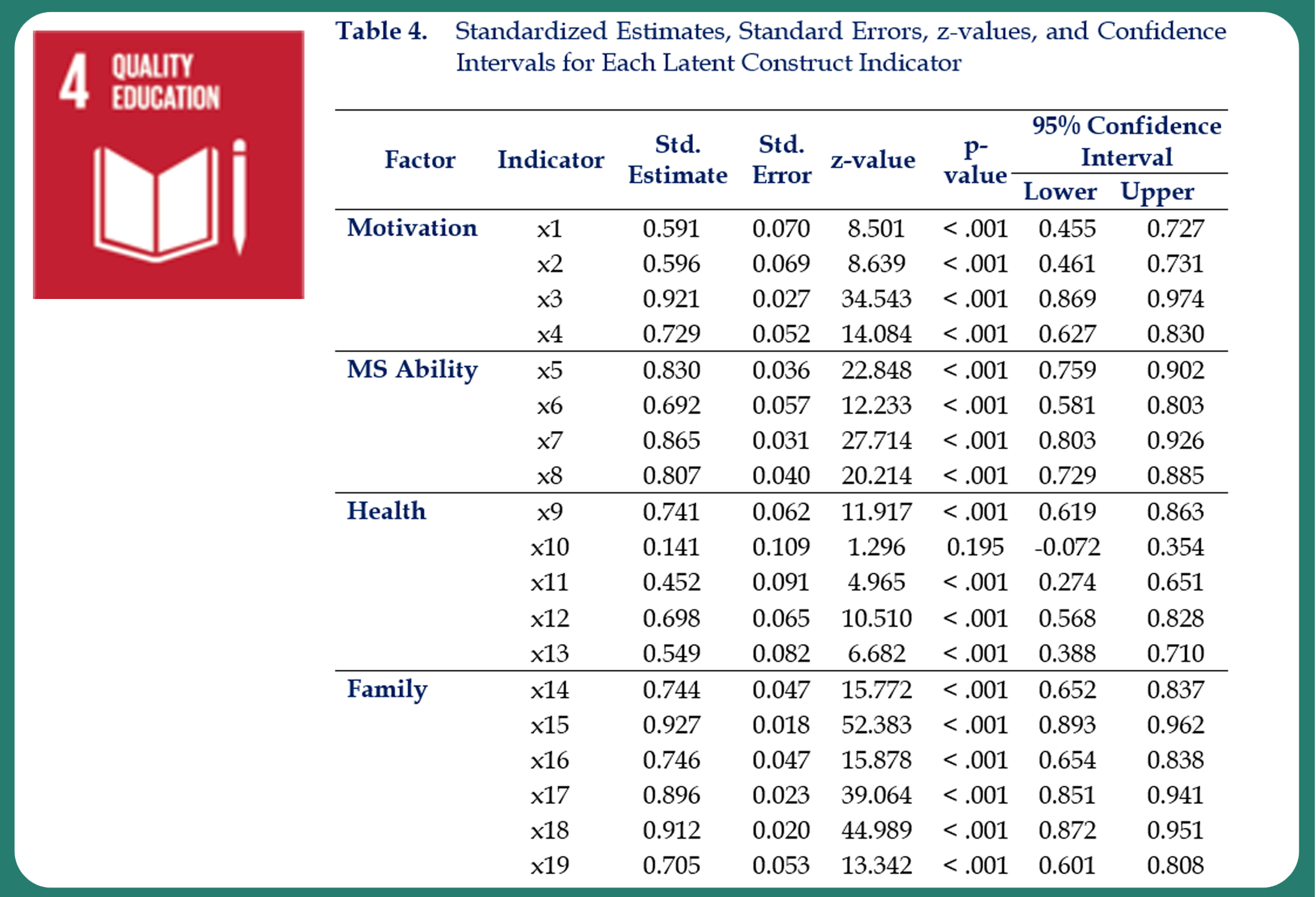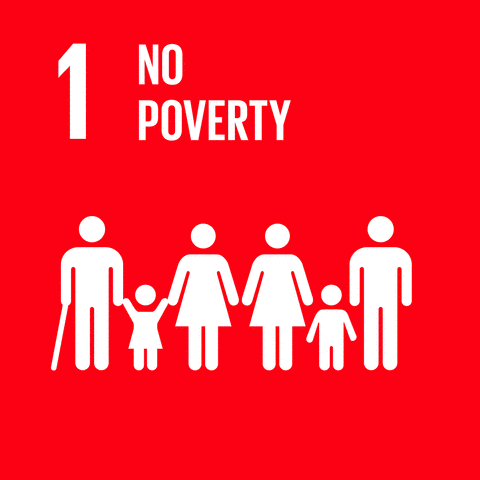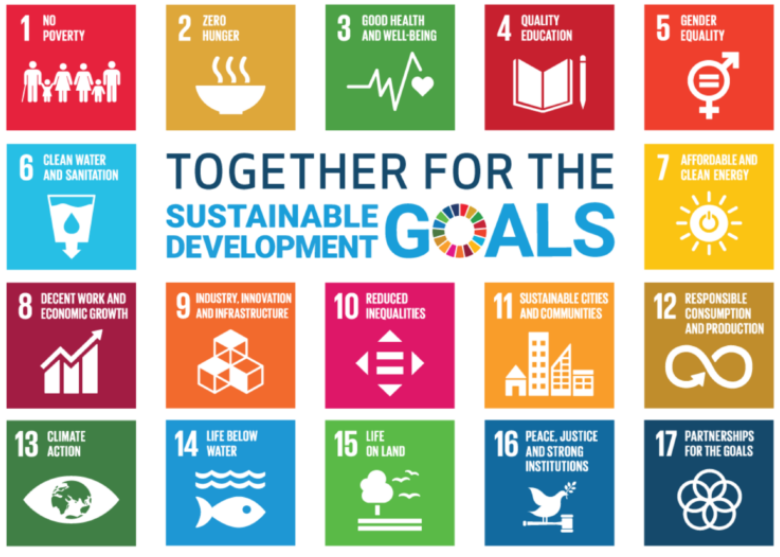An Analysis of Inhibiting Factors Affecting Thesis Completion among Students in the Informatics Engineering Education Program
DOI:
https://doi.org/10.24036/javit.v5i2.252Keywords:
Thesis Completion, Confirmatory Factor Analysis, Motivation, Supervisory Support, Higher Education, Delay FactorsAbstract
Delays in undergraduate thesis completion are a persistent issue in higher education, particularly within the Informatics Engineering Education Study Program at Universitas Negeri Padang. While prior studies have explored general academic barriers, limited research has systematically quantified the internal and external factors that hinder thesis progress in this specific context. This study addresses this gap by identifying and analyzing the dominant factors contributing to thesis delays using a quantitative approach supported by Confirmatory Factor Analysis (CFA). Data were collected through structured surveys distributed to final-year students. The analysis revealed six key influencing factors: motivation, thesis writing ability, health conditions, family support, supervisor guidance, and peer influence. Among these, motivation and writing ability were identified as the most dominant, with a combined variance contribution of 0.932. The novelty of this study lies in its integrated factor-based model that quantitatively distinguishes between internal and external constraints. These findings offer a practical foundation for targeted academic interventions and policy development aimed at accelerating thesis completion rates in vocational informatics education.
Downloads
References
R. O. Vos and S. H. Kamei, “Ensuring timely completion and successful thesis outcomes: a case study of an online GIS master’s degree program,” J. Geogr. High. Educ., Oct. 2024, https://doi.org/10.1080/03098265.2024.2316703.
N. Abdul-Rahaman, V. E. Arkorful, and T. Okereke, “Academic integration in higher education: A review of effective institutional strategies and personal factors,” Front. Educ., vol. 7, p. 856967, Aug. 2022, https://doi.org/10.3389/feduc.2022.856967.
L. R. Pelima, Y. Sukmana, and Y. Rosmansyah, “Predicting University Student Graduation Using Academic Performance and Machine Learning: A Systematic Literature Review,” IEEE Access, vol. 12, pp. 23451–23465, 2024, https://doi.org/10.1109/ACCESS.2024.3361479.
M. Rivansyah, N. Putra, and W. D. Sari, “Analysis of Academic Procrastination Language in Thesis Completion : Case Study of Psychology Students at Islamic University of Riau,” J. Bébasan, vol. 11, no. 1, pp. 1–11, Aug. 2024, https://doi.org/10.26499/BEBASAN.V11I1.241.
A. Aydin, S. E. Yürük, İ. Reisoğlu, and Y. Goktas, “Main barriers and possible enablers of academicians while publishing,” Scientometrics, vol. 128, no. 1, pp. 623–650, Jan. 2023, https://doi.org/10.1007/s11192-022-04528-x.
M. Tinhinane and M. Ilham, “Exploring Students’ and Teachers’ Views on the Impact of Self-belief on the Dissertation Journey in the Department of English at the University of Tizi-Ouzou,” Mouloud Mammeri Univ., 2024, Accessed: Jul. 03, 2025. [Online]. Available: https://dspace.ummto.dz/handle/ummto/26406.
M. Ntelo, “The social challenges that contribute towards non-completion within institutions of higher learning in Lesotho,” Univ. Free State, 2024, Accessed: Jul. 03, 2025. [Online]. Available: http://hdl.handle.net/11660/12967.
S. K. Ghatak, B. G. Menon, and B. Mahanty, “Identifying, prioritizing and ranking of factors influencing the PhD milestones’ completion delays,” Qual. Quant., vol. 55, no. 4, pp. 1457–1476, Aug. 2021, https://doi.org/10.1007/s11135-020-01068-5.
M. Nafe Assafi, M. I. Hoque, and M. M. Hossain, “Investigating the causes of construction delay on the perspective of organization-sectors involved in the construction industry of Bangladesh,” Int. J. Build. Pathol. Adapt., vol. 42, no. 4, pp. 788–817, Aug. 2024, https://doi.org/10.1108/IJBPA-10-2021-0137.
R. Suhartini, Ekohariadi, L. Nurlaela, U. Wahyuningsih, Yulistiana, and Y. I. Prihatina, “Validity, Reliability, Intra-rater Instrument Parameter Teaching Factory and Learning Outcomes of Industrial Clothing,” Proc. Int. Jt. Conf. Arts Humanit. 2021 (IJCAH 2021), vol. 618, pp. 1230–1239, Jan. 2022, https://doi.org/10.2991/assehr.k.211223.214.
A. Deutsch et al., “Inpatient Rehabilitation Facility Change in Self-Care and Change in Mobility Quality Measures: Development and Reliability and Validity Testing,” Arch. Phys. Med. Rehabil., vol. 103, no. 6, pp. 1105–1112, Jun. 2022, https://doi.org/10.1016/j.apmr.2021.12.031.
J. Metsämuuronen, “Directional nature of the product–moment correlation coefficient and some consequences,” Front. Psychol., vol. 13, p. 988660, Oct. 2022, https://doi.org/10.3389/fpsyg.2022.988660.
J. M. Pfadt, D. van den Bergh, K. Sijtsma, and E. J. Wagenmakers, “A tutorial on Bayesian single-test reliability analysis with JASP,” Behav. Res. Methods, vol. 55, no. 3, pp. 1069–1078, Apr. 2023, https://doi.org/10.3758/s13428-021-01778-0.
S. McBride and A. Garcés-Manzanera, “Exploring JASP as a data analysis tool in L2 research: a snapshot,” TEISEL. Tecnol. para la Investig. en segundas lenguas, vol. 3, Feb. 2024, https://doi.org/10.1344/teisel.v3.45189.
M. A. Maulyda, P. Y. Fauziah, A. Mustadi, S. Sugiman, and W. Wuryandani, “Factor analysis of parents’ and teachers’ involvement on the pri-mary school quality: Public school versus private school,” Ric. di Pedagog. e Didatt., vol. 19, no. 2, pp. 91–113, Dec. 2024, https://doi.org/10.6092/issn.1970-2221/19994.
J. B. Schreiber, “Issues and recommendations for exploratory factor analysis and principal component analysis,” Res. Soc. Adm. Pharm., vol. 17, no. 5, pp. 1004–1011, May 2021, https://doi.org/10.1016/j.sapharm.2020.07.027.
D. Goretzko, T. T. H. Pham, and M. Bühner, “Exploratory factor analysis: Current use, methodological developments and recommendations for good practice,” Curr. Psychol., vol. 40, no. 7, pp. 3510–3521, Jul. 2021, https://doi.org/10.1007/s12144-019-00300-2.
U. Usmadi, “Pengujian Persyaratan Analisis (Uji Homogenitas Dan Uji Normalitas),” Inov. Pendidik., vol. 7, no. 1, pp. 50–62, 2020, https://doi.org/10.31869/ip.v7i1.2281.
T. Peasgood et al., “Developing a New Generic Health and Wellbeing Measure: Psychometric Survey Results for the EQ-HWB,” Value Heal., vol. 25, no. 4, pp. 525–533, Apr. 2022, https://doi.org/10.1016/j.jval.2021.11.1361.
M. Nassif et al., “Validation of the Kansas City Cardiomyopathy Questionnaire in Symptomatic Obstructive Hypertrophic Cardiomyopathy,” JACC Hear. Fail., vol. 10, no. 8, pp. 531–539, Aug. 2022, https://doi.org/10.1016/j.jchf.2022.03.002.
M. Samaratunga and I. Kamardeen, “Modelling Work–Study Conflict Effects on Built Environment Students’ Well-Being, Health, and Academic Performance,” Buildings, vol. 15, no. 3, p. 406, Jan. 2025, https://doi.org/10.3390/buildings15030406.
T. Slavinski, D. Bjelica, D. Pavlović, and V. Vukmirović, “Academic Performance and Physical Activities as Positive Factors for Life Satisfaction among University Students,” Sustain. 2021, Vol. 13, Page 497, vol. 13, no. 2, p. 497, Jan. 2021, https://doi.org/10.3390/SU13020497.
A. Mahmood, N. Rehman, X. Huang, and N. Zamani, “Effect of strategic memory advanced reasoning training (SMART) therapy for enhancing final-year high school students career choices,” BMC Psychol., vol. 13, no. 1, pp. 1–16, Dec. 2025, https://doi.org/10.1186/s40359-025-02767-0.
T. Adedokun and F. Oyetunde-Joshua, “Strengthening Student-Supervisor Relationships: An Examination of Postgraduate Students’ Perspectives on Supervisory Supports,” JMSP (Jurnal Manaj. dan Supervisi Pendidikan), vol. 8, no. 2, p. 95, Mar. 2024, https://doi.org/10.17977/um025v8i22024p95.
T. Adedokun and F. Oyetunde-Joshua, “Navigating the Academic Odyssey: Exploring the Role of Supervisors in Supporting Postgraduate Students,” J. Cult. Values Educ., vol. 7, no. 1, pp. 1–18, Feb. 2024, https://doi.org/10.46303/jcve.2024.1.
F. M. AlQhtani, “Knowledge Management for Research Innovation in Universities for Sustainable Development: A Qualitative Approach,” Sustain., vol. 17, no. 6, p. 2481, Mar. 2025, https://doi.org/10.3390/su17062481.
H. Li, J. Xu, Y. Luo, and C. Wang, “The role of teachers’ direct and emotional mentoring in shaping undergraduates’ research aspirations: a social cognitive career theory perspective,” Int. J. Mentor. Coach. Educ., vol. 14, no. 2, pp. 123–142, May 2024, https://doi.org/10.1108/IJMCE-07-2023-0064.
E. T. Ethridge, “Inadequate and Harmful Clinical Supervision, Counseling Self-Efficacy, Coping, and Supervisee Burnout in Health Service Psychology Graduate Students,” 2025.
H. Hutman et al., “Supervisees’ Perspectives of Inadequate, Harmful, and Exceptional Clinical Supervision: Are We Listening?,” Couns. Psychol., vol. 51, no. 5, pp. 719–755, Jul. 2023, https://doi.org/10.1177/00110000231172504.
A. O. AbuSa’aleek and A. S. Alharbi, “Investigating Factors Impacting Timely Feedback Provision in Postgraduate Thesis Supervision: An Exploration of Supervisory Practices,” Int. J. Instr., vol. 18, no. 2, pp. 203–226, Apr. 2025, https://doi.org/10.29333/iji.2025.18212a.
W. Walsham, T. T. Perlman, and D. Sihotang, “Unraveling the Threads: A Comprehensive Exploration of the Interplay be-tween Social Isolation and Academic Stress Among Students,” Law Econ., vol. 17, no. 3, pp. 237–255, Oct. 2023, https://doi.org/10.35335/laweco.v17i3.47.
A. L. Capannola and E. I. Johnson, “On Being the First: The Role of Family in the Experiences of First-Generation College Students,” J. Adolesc. Res., vol. 37, no. 1, pp. 29–58, Jan. 2022, https://doi.org/10.1177/0743558420979144.
TCTR20240321003, “The effects of individual and family self-management program on self-management behaviors, sleep quality, and inflammatory markers among adults with uncontrolled type 2 diabetes mellitus in Indonesia,”3, Jan. 2024, https://doi.org/10.58837/CHULA.THE.2023.475.
S. O. Chukwuedo, F. O. Mbagwu, and T. C. Ogbuanya, “Motivating academic engagement and lifelong learning among vocational and adult education students via self-direction in learning,” Learn. Motiv., vol. 74, p. 101729, May 2021, https://doi.org/10.1016/j.lmot.2021.101729.
R. Ali and E. I. M. Zayid, “The Challenges and Problems Faced By Students In The Early Stage Of Writing Research Projects In L2, University of Bisha, Saudi Arabia,” SSRN Electron. J., Nov. 2022, https://doi.org/10.2139/ssrn.4278901.

Downloads
Published
How to Cite
Issue
Section
License
Copyright (c) 2025 Putri Yani Lature, Rizkayeni Marta, Lativa Mursyida, Agariadne Dwinggo Samala

This work is licensed under a Creative Commons Attribution 4.0 International License.










